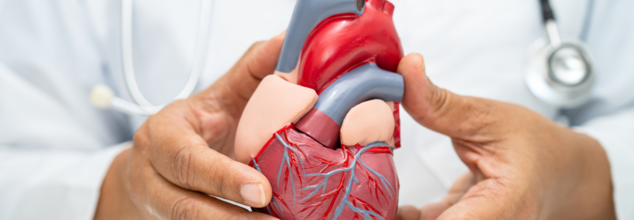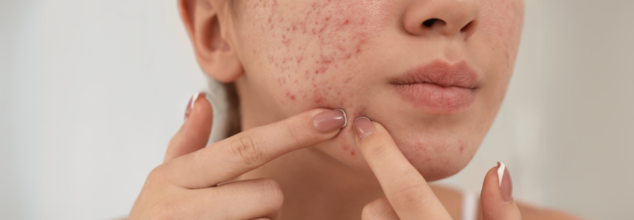- Health Conditions A-Z
- Health & Wellness
- Nutrition
- Fitness
- Health News
- Ayurveda
- Videos
- Medicine A-Z
- Parenting
- Web Stories
A Spoonful Of THIS In Your Daily Meals Can Lower Your Risk Of Dementia

(Credit-Canva)
Affecting millions of people throughout the globe, dementia is the seventh leading cause of death. There are many different variations of the condition, Alzheimer’s being the most common. In 2021, according to the World Health Organization, 57 million people were affected worldwide.
When it comes to what factors affect the risk of dementia, your dietary intake is first in line to change. What you eat can increase or decrease the chance of you getting dementia. Researchers have found that something as simple as adding a spoonful of olive oil to your meals each day could have a big impact on your health, potentially lowering your chances of dying from dementia.
Research suggests that this common cooking oil might have protective properties for the brain, in addition to its well-known benefits for the heart, making it a potentially life-saving habit to incorporate into your daily routine.
How Dietary Habits Directly Impact Dementia Deaths?
Published in the JAMA Network Open by the Nutrition, Obesity, and Exercise 2024, this study specifically examined how individual foods within that diet relate to death rates associated with dementia. The researchers looked at the eating habits of a large group of adults and tracking how many of them eventually died from dementia. This long-term study allowed them to see if there were any connections between specific foods people ate regularly and their risk of dying from this brain condition. While past studies hinted that the Mediterranean diet might be good for the brain, this research specifically focused on how individual foods within that diet, like olive oil, were linked to dementia-related deaths.
Long Term Implications of Olive Oil Intake
A dedicated team of researchers from a well-known health school in the United States followed the diets of more than 92,000 adults for nearly 30 years. All of these people reported eating at least a small amount of olive oil, about half a tablespoon, every day as part of their regular meals. By following such a large group over a long period, the researchers were able to gather a lot of information about the potential long-term effects of olive oil consumption on their health, particularly in relation to dementia.
The results of this long-term study were quite striking. They found that the people who regularly made olive oil a part of their daily diet had a significantly lower chance – about 28% lower – of dying from dementia compared to those who didn't use olive oil often or at all. This suggests that consistently including even a small amount of this oil in your meals could offer a considerable level of protection against this devastating brain condition.
Replacing Unhealthy Fats with Olive Oil
Experts pointed out that their findings support the advice to use vegetable oils like olive oil in our diets. She suggested that this recommendation might be important not only for keeping our hearts healthy but also for potentially keeping our brains healthy as we age. She also noted that choosing olive oil, which is a natural product, instead of less healthy fats like margarine and the mayonnaise you buy in stores, could be a safe way to reduce the risk of dying from dementia.
Risk Factors Of Dementia
While the study found a clear link between eating olive oil and a lower risk of dementia death, experts are still looking to understand the disease more. They have identified several things that can make a person more likely to develop the condition. While some of these risk factors, like how old you are and your genes, are things you can't change, others are related to your lifestyle choices.
Health experts recommend several lifestyle changes that may help reduce the risk of developing dementia. These include eating a well-balanced diet rich in fruits, vegetables, and healthy fats like olive oil, maintaining a healthy body weight, engaging in regular physical activity, limiting alcohol consumption, quitting smoking, keeping your blood pressure at a healthy level, and staying socially active and connected with others
Heart Disease Symptom That Shows Up In Your Legs - Survey Reveals 46% People Don't Know Of It

(Credit-Canva)
Cardiovascular diseases are the leading cause of death globally, affecting nearly 17.9 million people each year, according to the World Health Organization (WHO).
‘Heart diseases’ or ‘cardiovascular diseases’ are umbrella terms that encompass a wide variety of diseases like angina, heart attacks, strokes, arrhythmia etc. These problems are often caused by fatty deposits building up inside the arteries. The reason why these clogs cause as issues is because they stop the blood from flowing to and from necessary body parts, depriving them of air as well as nutrients. This can also lead to damage in other vital organs like the brain, the heart itself, the kidneys, and even the eyes.
There are many different types of heart diseases, as well as many symptoms. The most common ones that many people know of are chest pain, sudden shortness of breath, irregular heartbeats, extreme fatigue, etc. However, there are also many subtle signs of heart diseases that you may not know of.
How Many People Know of This Subtle Symptom
It's important to know that the symptoms of heart disease can be different for each person. Because of this variability, some individuals might not even realize that the warning signs they are experiencing could be related to a serious heart condition.
A recent survey conducted by LloydsPharmacy Online Doctor, involving 500 adults in the UK, found a concerning lack of awareness about certain heart disease symptoms. Specifically, only 46 percent of those surveyed knew that swelling in the legs could be a sign of heart problems.
This lack of knowledge is concerning because if people don't know that leg swelling can be related to their heart, they might not take it seriously or go to the doctor to get it checked out, potentially missing an important early sign of heart trouble.
When the survey asked about well-known signs of heart disease, most people got some of them right. A large majority knew that chest pain, especially if it feels like pressure or squeezing, could be a sign of a heart problem needing immediate attention. Many people also knew that feeling very out of breath and having an irregular heartbeat could be linked to heart issues. These are important symptoms for everyone to be aware of, as they are often key indicators that something might be wrong with the heart.
Lesser Known Symptoms
While many people knew about chest pain and shortness of breath, the survey showed that other important symptoms of heart disease were not as widely recognized. Feeling extremely tired all the time, even when you haven't done much, can be a sign. Also, as mentioned before, swelling in the legs, which happens when fluid builds up, is another symptom that many people don't realize could be related to their heart. Being aware of these less common signs is crucial for early detection.
The fact that many people don't know about all the different ways heart disease can show itself highlights why it's so important to learn about a wide range of potential warning signs. Relying only on the most commonly known symptoms like chest pain might cause people to ignore other important signals their body could be sending them. Recognizing less obvious signs, such as unusual fatigue or swelling in the legs, could lead to earlier diagnosis and treatment, which can make a big difference in managing heart conditions and improving health outcomes.
First-Ever Acne Vaccine Enters Clinical Trials; Could Clear Skin Be Just One Shot Away?

Credits: Canva
A experimental vaccine for acne has officially entered human clinical trials. The vaccine presents a new avenue of treating the underlying causes of acne, one of the most prevalent and chronic skin conditions that occur in an estimated 95% of individuals aged between 11 and 30. If it works, it may mark a paradigm shift away from long-term, side-effect-suffering therapies to a more sure, science-based immunological cure.
Acne is more than just a teen annoyance, it's a condition involving inflammation of the skin that effects mental health, self-esteem, and quality of life. It forms when pores and follicles in the skin get blocked by extra oil, dead cells, and, in many cases, the presence of bacteria known as Cutibacterium acnes (C. acnes). The outcome: painful pimples, nodules, and cysts, usually found on the face, chest, and back. Developed by pharmaceutical giant Sanofi, the potential medical breakthrough has the potential to revolutionize treatment of acne globally.
Hormonal fluctuations (particularly at puberty), genetics, stress, diet, and drugs are general precipitants. More recently, though, the involvement of skin-resident pathogens such as C. acnes has gained wider scientific attention, revealing new therapeutic opportunities not least, vaccines.
Sanofi's April 2024-initiated clinical trial is a Phase I/II trial to be conducted through 2027. It will assess both the safety and effectiveness of the acne vaccine in adults between the ages of 18–45 with moderate to severe facial acne.
The research will consist of about 400 participants who will be administered different levels of the vaccine — up to three shots throughout the study. There will be a control group that will get a placebo, which will enable researchers to compare and measure the actual effect of the vaccine.
While Sanofi has not issued full technical information, publicly available reports show the vaccine employs mRNA technology — a game-changing technique well known throughout the COVID-19 pandemic. Such a vaccine functions by teaching the body's immune system to attack particular proteins — in this instance, most likely those manufactured by C. acnes — to eliminate their acne-causing impact.
Why an Acne Vaccine Might Change Skin Therapies?
Treatment of current acne is symptom-oriented. The following are the measures used:
- Topical and oral retinoids to enhance skin turnover
- Antibiotics to decrease bacterial overgrowth
- Hormonal therapy (for example, birth control pills) to moderate internal stimuli
Yet, such treatments are severely constrained. Retinoids are known to create such severe dryness and have been implicated in mood alteration, whereas long-term use of antibiotics leads to drug resistance — an increasingly mounting public health challenge. Hormonal treatment is not appropriate for all consumers and necessitates regular medical supervision.
An acne vaccine, however, presents the possibility of longer-lasting relief without daily treatment. It might decrease reliance on drugs, lower side effects, and possibly stop acne flare-ups from occurring at all by addressing underlying reasons — and not only the symptoms.
When Might the Acne Vaccine Arrive?
Despite the excitement, Sanofi’s vaccine is still in the early stages of development. Results from this Phase I/II trial are expected post-2027, and if they are promising, the vaccine would then move into larger-scale Phase III trials, which could take several more years.
Globally, historically, it can take a decade or more from the point of conception to the time when any new vaccine is being distributed worldwide.
In addition to demonstrating efficacy, scientists have to figure out how frequently the vaccine must be given, how long the immunity will last, and if it can be used preventatively in people who are genetically or hormonally predisposed to acne.
Encouragingly, Sanofi also hopes to start another Phase I trial in 2027 for those with less severe acne, further broadening the reach of the vaccine.
Are There Any Other Acne Vaccines Being Developed?
Sanofi is not the only one in the race. Scientists at the University of California, San Diego, are working on a vaccine that attacks a mutated form of an enzyme known as hyaluronidase, present in the acne-producing strains of C. acnes. The enzyme dissolves hyaluronic acid, a naturally occurring molecule in the skin that keeps it hydrated and intact. When disrupted, it initiates immune reactions that result in inflammation, the defining feature of acne.
However, these alternative vaccines are still in preclinical stages, placing Sanofi’s candidate at the forefront of global acne vaccine research.
How To Combat Acne Naturally?
While the acne vaccine remains a fantasy at this point, its promise is huge. It may revolutionize acne treatment in the same manner vaccines have altered the way infectious diseases are treated. For millions of people suffering from chronic acne and its mental price tag, the prospect of unblemished skin from one injection means more than medical progress — it means empowerment, self-esteem, and freedom. Here are some natural ways you can combat and manage your acne prone skin by checking your skin type and following the below steps:
1. Stay hydrated and drink 2–3 liters of water daily. Incorporate water-rich fruits and vegetables like watermelon, cucumber, and oranges. Herbal teas with ginger, lemon, or chamomile aid digestion and promote glowing skin.
2. Follow a balanced diet based on your Ayurvedic prakriti and elevated doshas. Include whole grains, dairy, seasonal fruits, and antioxidant-rich foods like tomatoes, broccoli, and papaya. Avoid fried, refined, and processed foods, as well as excessive sugar, salt, and red meat.
3. Regular exercise promotes blood circulation, detoxification, and skin nourishment. Activities like yoga, walking, or dancing improve oxygen flow, flushing out toxins and revitalizing the skin.
4. Maintain a consistent sleep schedule. Restful sleep stimulates growth hormones, promoting collagen and elastin production, which keeps skin firm and youthful.
As clinical trials continue, dermatologists and global public health officials will keep a keen eye on results. If this vaccine passes safety and efficacy standards, it may one day redefine the world of skincare as we know it.
Can Dehydration Affect Your Eye Sight?

(Credit-Canva)
While we all know that water is the essence of life, without which we cannot survive, many of us neglect our water intake, only drinking it when we are parched. While you may not know this, hydration helps keep our body parts lubricated and functioning properly, like our eyes. One needs adequate water intake to keep our water eyes moist. According to the eye foundation, hydration helps us form tears, keep our eyes hydrated and free of infections, it also helps clearing toxins from the body as well as carry essential vitamins and minerals throughout our body.
However, a recent report has revealed a significant problem in the UK, many people don't know how their diet affects the health of their eyes. the study highlighted the lack of understanding that people have about the vital role hydration, vitamins and minerals that we need to survive. It means that people might not be making the right food choices to keep their eyes healthy in the long run, potentially leading to vision problems later in life that could have been avoided with better nutritional knowledge.
The study, called 'SEEING SENSE: The Nation's Eye Health Knowledge And The Impact Of Diet,' was put together by MacuShield, a company that makes supplements for eye health. The name of the report itself suggests that there's a need for more common sense and understanding when it comes to looking after our eyes through what we eat.
Survey Revealed The Lack of Understanding People Have About Vision And Diet
Experts expressed concern that less than half of British people feel they know how to support their eye health through diet. She also highlighted how crucial it is to drink enough water, not just for overall health, but specifically for good eyesight. Dehydration can lead to uncomfortable issues like dry eyes and even affect how clearly we see, so encouraging people to drink enough fluids is a key message from the report.
It also showed that many people in the UK don't know which specific vitamins and minerals are good for keeping their eyes healthy, nor do they know which foods contain these important nutrients. Adding to this issue, government statistics show that most people in the country aren't eating the recommended five portions of fruits and vegetables every day, meaning they are likely missing out on key nutrients that support good vision.
Dehydration Can Affect Vision
The report emphasizes that not drinking enough water can cause direct problems for our eyes, such as making them feel dry, giving us headaches, and even blurring our vision. What makes this even more concerning is that the study found that people in the UK are actually drinking less water now compared to before. This worrying trend in lower water consumption only makes the risk of these dehydration-related eye issues even greater for the population.
The latest data from MacuShield shows a troubling drop in water intake, with fewer people drinking the recommended amounts and a significant portion consuming very little water daily, highlighting a real need for increased awareness about hydration.
How Much Water Should We Drink?
Experts on the study recommended women and older girls to drink about two liters of water each day, while men and older boys should aim for around 2.5 liters to help keep their eyes properly lubricated and generally healthy.
© 2024 Bennett, Coleman & Company Limited

